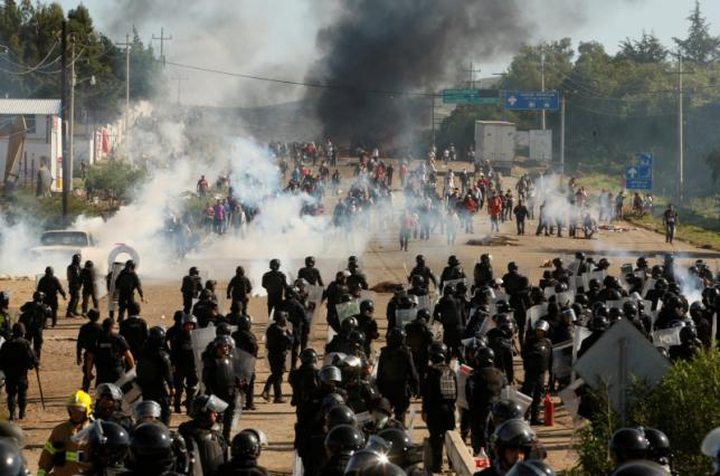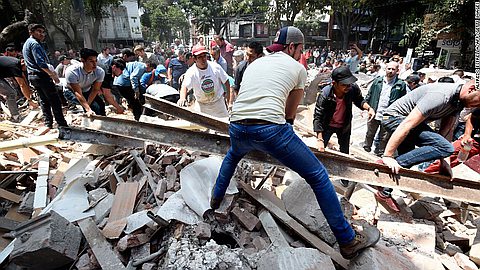Mexico Teacher Protests Buffet Ruling Party, Eight Killed In Clashes

Violence erupted on Sunday when police dislodged protesters blocking a highway in the southern state of Oaxaca, a hotbed of dissent from radical teachers' groups opposed to education reforms pushed through by the government three years ago.
Speaking on local radio early on Monday, Jorge Ruiz, Oaxaca's state secretary for public safety, said eight people died in two separate confrontations, raising the death toll in the clashes from a previous tally of six.
He said six people died near the town of Nochixtlan, about 50 miles (80 km) northwest of the city of Oaxaca, while two others were killed in related protests in Juchitan, in the southeast of Oaxaca state.
Mexican President Enrique Pena Nieto said on Twitter he was sorry for the loss of life and the federal government would help Oaxaca state investigate the incident.
"I've given instructions so that ... actions can be taken to solve the conflict," he wrote.
The violence is the latest in a series of setbacks to Pena Nieto's government, which has faced widespread criticism for its failures to crack down on graft and impunity, contain drug gang violence or jumpstart the economy.
It also deals a fresh blow to the ruling Institutional Revolutionary Party (PRI), still smarting from a drubbing in regional elections earlier this month which put it on the back foot in the run-up to the next presidential election in 2018.
The violence has tarnished the reputations of two of the party's leading contenders for the 2018 ticket: Education Minister Aurelio Nuno and Interior Minister Miguel Angel Osorio Chong, whose brief includes domestic security.
Rocio Nahle, the leftist National Regeneration Movement (Morena) party's parliamentary coordinator, said Nuno should resign over the violence, but blamed Osorio Chong as well.
"Pena Nieto will go down in history as one of the worst presidents in terms of violating human rights," she told Reuters.
'Insufficient' accountability
The violence came as Christof Heyns, the United Nations' Special Rapporteur on extrajudicial, summary or arbitrary executions, said on Monday that police accountability in Mexico was insufficient.
"Extrajudicial executions and excessive use of force by security agents persist," Heyns said in a U.N. report.
The unrest has escalated since police arrested the leader of the local teachers' union earlier this month. Ruben Nunez, head of one of the most combative factions of Mexico's CNTE union, Oaxaca's Section 22, was detained on suspicion of money laundering.
The CNTE has led efforts to resist federal education reforms, particularly its mandate to carry out teacher evaluations. Miguel Zurita, a CNTE representative in Oaxaca, said that when police arrived to dislodge Sunday's protest near Nochixtlan, they were unwilling to enter into a dialogue.
"What we lived through yesterday was something brutal, something that has no name," he said. "They arrived armed and they arrived shooting."
The Mexican government, however, defended its handling of the protests.
In a statement, the National Security Commission denied federal forces had used firearms against protesters, saying images circulating online of police with rifles were faked.
Enrique Galindo, the head of Mexico's federal police, said masked individuals who were not affiliated to the teachers' union were behind much of the violence, lobbing Molotov cocktails and shooting at police and civilians.





